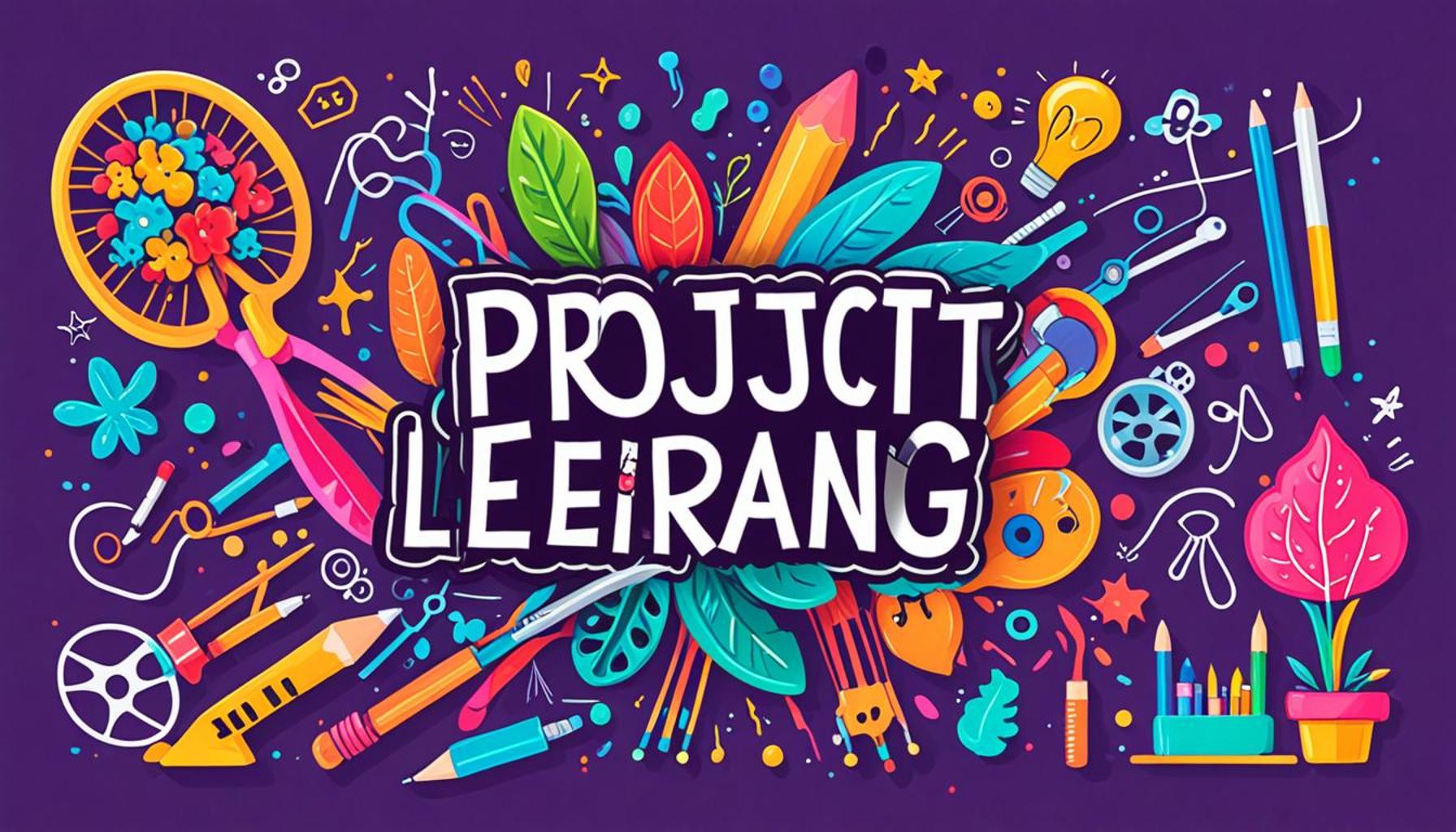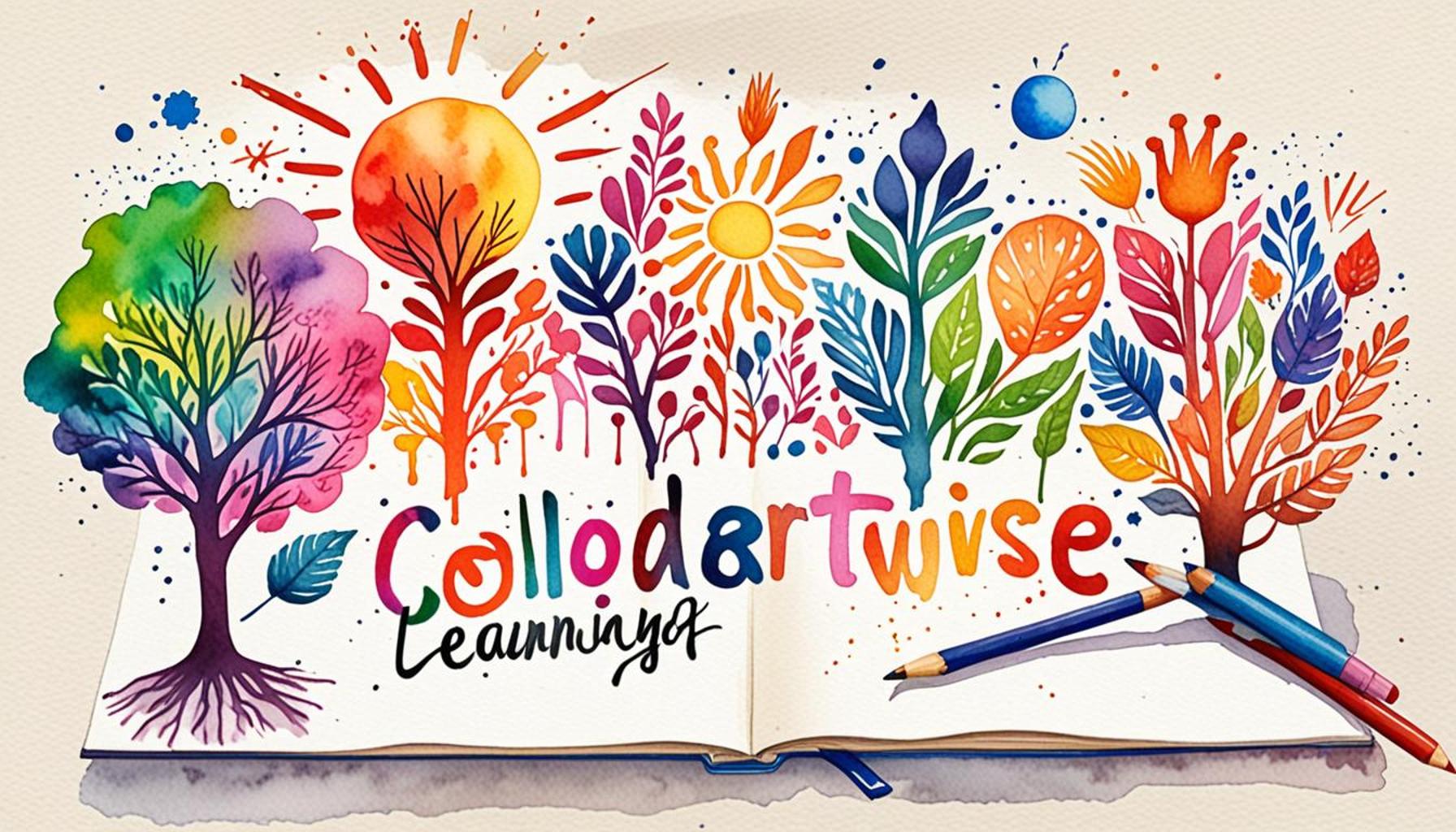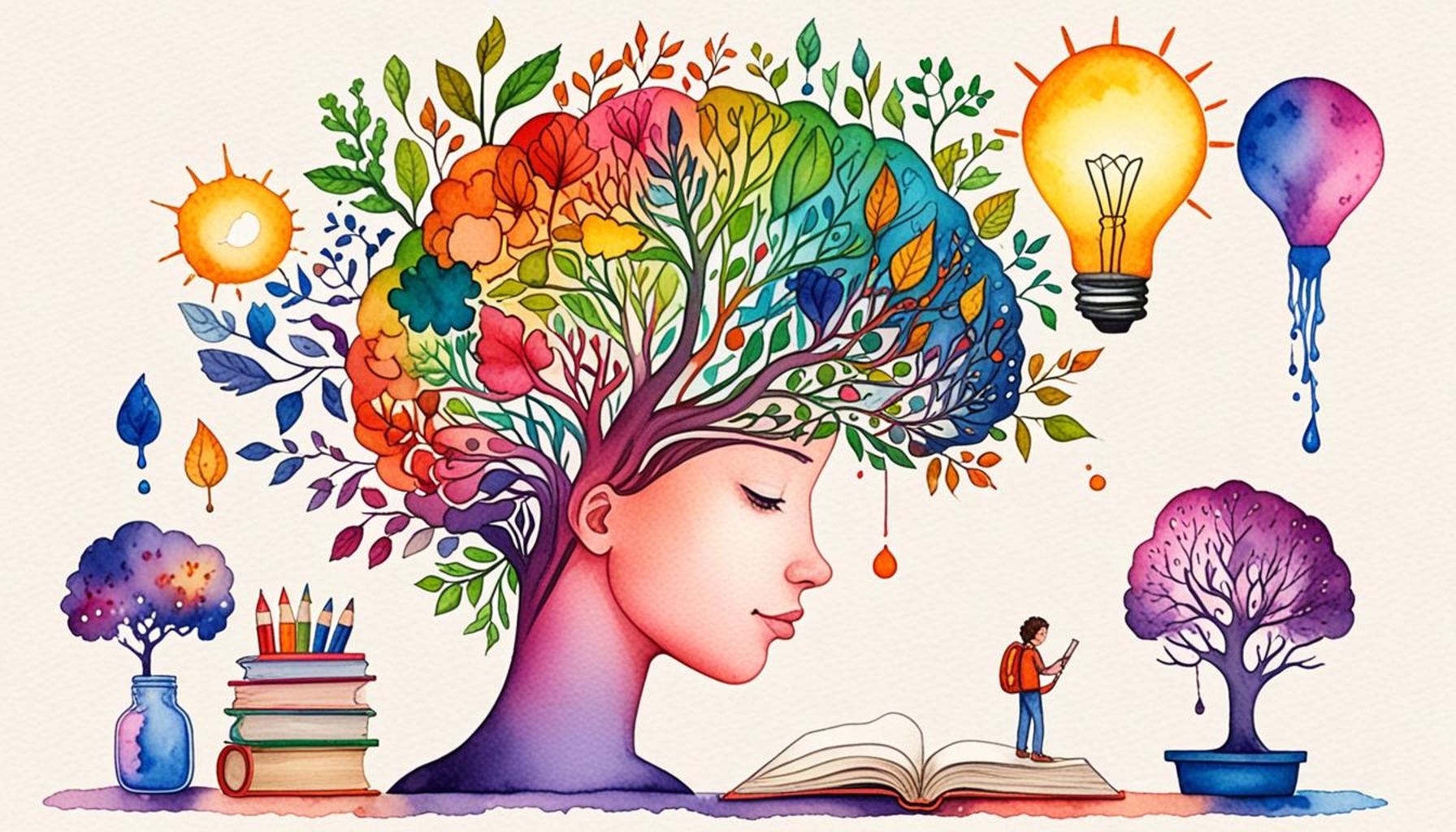The Importance of Project-Based Learning for Developing a Growth Mindset

The Importance of Project-Based Learning in Nigeria
In today’s fast-paced and multifaceted global landscape, schools must equip students with skills that transcend traditional academic boundaries. Project-based learning (PBL) emerges as an innovative educational strategy aimed at nurturing a growth mindset among students, particularly in Nigeria. This dynamic approach immerses learners in hands-on projects, encouraging them to explore concepts application in real-world scenarios.
Real-World Application
PBL is particularly effective due to its emphasis on real-world application. Students engage in projects that tackle pressing community challenges, such as access to clean water or waste management. For instance, a group of students might collaborate to design a rainwater harvesting system to help their neighborhood cope with seasonal shortages. This not only provides a practical learning experience but also fosters a feeling of contribution and social responsibility.
Collaboration and Teamwork
A core tenet of PBL is collaboration. Projects typically require students to work in teams, mirroring the collaborative nature of modern workplaces. By engaging in group activities, learners develop essential communication skills and learn to respect diverse opinions. An exciting example can be seen in a project where students create a business plan for a local enterprise, combining their strengths in different areas to devise a comprehensive and cohesive strategy.
Enhancing Critical Thinking
PBL stimulates students’ critical thinking abilities by challenging them to confront complex, real-life problems. Learners dissect issues, brainstorm solutions, and implement their ideas in a relatively short time, sharpening their analytical skills. For instance, high school students might investigate local environmental impacts caused by deforestation and propose restoration efforts, prompting rich discussions and deep analysis of ecological principles and community dynamics.
The Role of a Growth Mindset
Fostering a growth mindset is essential in preparing today’s students for the future. Respondents from various educational surveys emphasize that experiential learning nurtures resilience and problem-solving abilities. With a growth mindset, students in Nigeria are more inclined to view challenges as opportunities for development rather than insurmountable obstacles. For example, a student who faces difficulties in their project might adapt their approach and learn from feedback, ultimately enhancing their performance both academically and personally.

In conclusion, as education systems continually reshape to meet contemporary challenges, integrating project-based learning becomes increasingly crucial. By connecting students with relevant, real-world issues, PBL supports the cultivation of a growth mindset essential for navigating the complexities of modern society. Through collaboration, critical evaluation, and addressing community needs, learners are not only equipped with knowledge but also empowered to take action in their lives and communities.
YOU MAY ALSO LIKE: Read read another article
Why Project-Based Learning is Crucial for a Growth Mindset
As education evolves, project-based learning (PBL) has emerged as a transformative approach that offers students practical experience while fostering a deep-rooted growth mindset. In Nigeria, where traditional learning methods still hold significant sway, integrating PBL into educational practices presents a crucial opportunity to cultivate resilience and adaptability among learners. This method not only enhances understanding but inspires students to embrace challenges and persist in the face of obstacles.
Encouraging Self-Directed Learning
One of the standout characteristics of PBL is its promotion of self-directed learning. Students are not merely passive recipients of information; instead, they actively engage in their educational journey. This approach allows them to take ownership of their learning process. For example, a student who is tasked with developing a project on sustainable agriculture must research, plan, and implement their ideas. This journey of exploration fuels curiosity and encourages learners to seek solutions independently, which is a key trait of a growth mindset.
Resilience through Problem-Solving
PBL presents students with numerous challenges that require critical problem-solving skills. As they navigate through projects, they encounter setbacks that encourage them to adapt their strategies. It is here that the importance of resilience becomes evident. Consider the case of a group of Nigerian students working to create an app that addresses local health issues. When their initial prototype fails to function correctly, instead of giving up, they learn to analyze the problem, seek feedback, and iterate on their design. Such experiences are foundational in helping students adopt a mindset that views failure not as defeat, but as a stepping stone toward success.
Key Elements of Project-Based Learning
To fully grasp the impact of PBL in nurturing a growth mindset, it is essential to understand its key elements:
- Real-World Relevance: Projects tackle actual issues, providing students with contexts that matter to them and their communities.
- Collaborative Efforts: Teamwork is central to PBL, mirroring the collaborative environment of contemporary workplaces.
- Reflection and Feedback: Continuous reflection and constructive feedback help students refine their projects and personal growth, both vital aspects of developing resilience.
- Interdisciplinary Approach: PBL encourages students to connect different subject areas, allowing for a more holistic educational experience.
In a landscape like Nigeria’s, where educational reform is increasingly essential, PBL represents a significant shift towards preparing students for the complexities of the future. By prioritizing experiential learning, educators equip students with not only academic knowledge but the emotional and cognitive tools necessary to thrive in uncertain environments.
Ultimately, the integration of project-based learning in Nigeria’s educational framework paves the way for a generation of learners who are not only knowledgeable but also adaptable and resilient, capable of facing the myriad challenges that lie ahead.
The Importance of Project-Based Learning for Developing a Growth Mindset
Project-Based Learning (PBL) is increasingly recognized as a transformative educational approach that not only engages students but also cultivates a growth mindset. Central to the effectiveness of PBL is its ability to immerse learners in real-world challenges that require critical thinking, collaboration, and creativity. By actively engaging in projects, students are encouraged to take risks, make mistakes, and learn from them—a vital aspect of fostering resilience and a robust growth mindset.Through collaborative projects, learners develop valuable skills that extend beyond academic knowledge. They are exposed to various perspectives while working in teams, which enhances their social and emotional intelligence. This collaboration encourages communication, patience, and understanding—traits essential for personal and professional success. Moreover, project-based experiences allow students to see the practical applications of their learning, motivating them to dive deeper into subjects and fostering an intrinsic love for learning.Furthermore, PBL encourages reflection. Students regularly assess their progress and set goals for improvement. This self-assessment process cultivates a deeper understanding of their capabilities and emphasizes that growth is a continuous journey, not a destination. Instead of fearing failure, students learn to embrace it as an opportunity to grow and innovate, which is a cornerstone of the growth mindset concept as proposed by psychologist Carol Dweck.To visualize the benefits of this approach, consider the following table which outlines key advantages of Project-Based Learning in developing a growth mindset.
| Advantage | Description |
|---|---|
| Enhanced Engagement | Students are actively involved in their learning process, increasing motivation and interest. |
| Develops Problem-Solving Skills | Challenges faced in projects promote critical thinking and adaptability. |
| Fosters Collaboration | Working in groups enhances communication and teamwork abilities. |
| Encourages Reflection | Regular self-assessment leads to personal growth and goal setting. |
The interplay of these elements not only enriches the educational experience but also equips students with the necessary tools to navigate an ever-changing world. Embracing Project-Based Learning can truly revolutionize the way we approach education and personal development, enabling learners to thrive and adapt.
YOU MAY ALSO LIKE: Read read another article
Empowering Learners through Active Engagement
The essence of project-based learning (PBL) is in its ability to create an environment where students not only consume knowledge but actively construct it through hands-on experiences. In a country like Nigeria, where educational disparities can hinder traditional learning, PBL fosters an engaging atmosphere that invites curiosity and innovation. This active participation is crucial for developing a growth mindset, as it encourages students to perceive challenges as opportunities to learn and grow.
Promoting Essential Life Skills
Through project-based learning, students acquire essential life skills that extend far beyond the classroom. These skills include critical thinking, communication, and collaboration—all of which are vital in today’s complex world. For example, working on a community project aimed at reducing plastic waste can teach students not just about environmental stewardship but also how to communicate ideas effectively to different stakeholders, from local businesses to government officials. Such experiences build confidence and enhance a student’s ability to articulate their thoughts, crucial components of a growth mindset.
Integrating Technology for Deeper Learning
The integration of technology in PBL offers a unique dimension that aligns with the digital age, presenting students with tools that enhance their learning experience. Whether it’s using data analysis apps for a science project or utilizing design software for a marketing plan, technology helps students engage more deeply with content. In Nigeria, where access to technology is increasing, students can leverage these tools to explore avenues they may not have considered otherwise. This technological engagement fosters a sense of accomplishment and encourages learners to tackle more complex challenges, reinforcing the ideals of a growth mindset.
Building a Supportive Learning Community
PBL facilitates the creation of a supportive learning community among students, teachers, and even parents. In collaborative settings, students share ideas, provide feedback, and celebrate each other’s efforts, creating a rich atmosphere conducive to learning. Such communities are vital for nurturing resilience, as peer support helps learners navigate obstacles together. For instance, in a Nigerian secondary school, a group of students may join forces to address local educational issues, using their collective strengths to advocate for change. This shared journey not only builds lasting friendships but also instills a mindset that believes in the power of collaboration.
The Role of Educators in Fostering Growth Mindset
The role of educators in the PBL framework cannot be overstated. Teachers act as facilitators, guiding students through their learning processes rather than merely imparting knowledge. In Nigeria, where the teacher-led model is prevalent, transitioning to a more student-centered approach can be revolutionary. Educators can encourage students to set personal goals within each project and reflect on their progress, reinforcing the concept that growth is a continuous journey rather than a final destination. With the right support, students can embrace challenges, learn from failures, and celebrate their successes.
As educators and students alike navigate this transformative path, the synergy created through project-based learning positions them to cultivate a generation equipped with a strong growth mindset. This approach not only addresses the immediate learning needs but prepares learners for a future fraught with uncertainties and challenges, ensuring they can adapt and thrive in any circumstance.
LEARN MORE: This related article may interest you
Conclusion: Embracing the Future through Project-Based Learning
In summary, the significance of project-based learning (PBL) in fostering a growth mindset cannot be overstated. As Nigeria continues to evolve its educational landscape, the integration of PBL offers students a unique opportunity to cultivate resilience and adaptability. Engaging in hands-on projects not only nurtures critical thinking and collaboration skills, but it also encourages learners to tackle real-world problems with confidence. This method shifts the focus from rote memorization to actively constructing knowledge, allowing students to see challenges as pathways to growth rather than obstacles to success.
By emphasizing teamwork and communication in learning environments, PBL creates a supportive community where students learn from one another, enhancing their emotional intelligence and social skills. Furthermore, the incorporation of technology into PBL strategies empowers students to explore innovative solutions, preparing them for a digitalized future. As teachers transition towards a facilitative role, students become more self-directed and proactive in their learning processes, internalizing the fundamental principles of a growth mindset.
The future of education in Nigeria lies in embracing these transformative methodologies. As educators, policymakers, and communities come together to champion project-based learning, they equip students not only with academic knowledge but also with a mindset that thrives on learning from failures and celebrating progress. Ultimately, adopting PBL at every educational level sets the stage for a generation that is not just ready for the challenges of today but is also eager for the opportunities of tomorrow.



